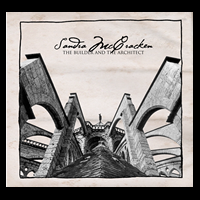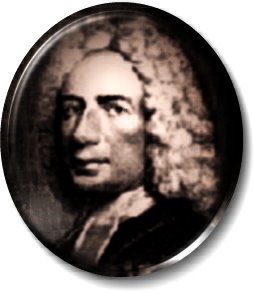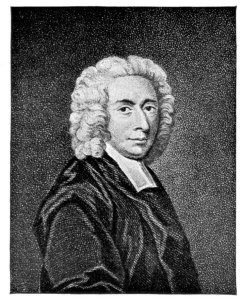John Carlson sent me this job description for a Worship Pastor position opening that he saw online. I have removed the church name to protect them from further embarrassment. Yes, this is insanely long, but it is an unbelievable description. Only Jesus could qualify... and even then, he may not have the "professional" credentials.
- - - -
Job Description:
Music and Creative Arts Pastor
General Profile:
THE CHURCH is seeking a Music and Creative Arts Pastor who can lead our Creative Arts ministry team into the future God is preparing us for. We desire a leader who demonstrates a lifestyle of worship, integrity and commitment. He should have a growing relationship with Christ, with his family and with others. He will be able to embrace and support the THE CHURCH Staff Covenant and THE CHURCH Statement of Faith as well as our mission, vision and values.
Our ideal candidate will have strong worship leading abilities in multiple styles. He should also have the ability to build and lead a service design team committed to excellence, creativity and genuine worship with sensitivity to flow, to transitions, to the Holy Spirit, to “planned spontaneity” and to reading the moment in worship. He will need excellent communication and people skills, organizational and leadership skills, proven team building ability and experience leading multiple staff with a minimum of five years experience in a church of 2500 or more. He will have the ability to work with rhythm sections, orchestra, choirs, vocal and instrumental ensembles and will develop and empower leaders when needed. He will need some writing, arranging and orchestrating ability or the resources to get it done. He will have experience producing and conducting major ministry events such as concerts, musical productions, conferences, recordings and videos.
We are looking for a visionary, entrepreneurial leader who knows how to bring out the best in artistic and creative people. He will be a Music and Creative Arts community builder and a champion for the reclamation of the arts for Christ. This will eventually include the development of a creative arts academy. He will be able to teach on the biblical theology and practice of worship. He will be a learner who is always looking for ways to improve and grow for himself, his staff and ministry partners. He will be a modeling, mentoring, team builder, who is a coach of coaches and is capable of bringing out the best in his team of leaders and ministry partners.
He will also serve as a consultant and advisor for the development of the Music and Creative Arts ministries of our multi sites. Our new Music and Creative Arts Pastor will need to have excellent chemistry with our Senior Pastor, the Pastoral Leadership Team and the Service Design Team. Our desire is to create an environment on our staff that is joyful, fun, productive, creative, catalytic, caring, and committed to excellence in life and ministry. We want to grow a healthy, vibrant church that deeply loves God and one another. We want to do life deeply together and to share that life with others.
Primary Functions: To glorify God through genuine worship, engaging worship leadership and excellence in programming and presentation that leads people into the life transforming presence of God; to develop a Music and Creative Arts community that is deeply devoted to Christ, to one another, to the pursuit of excellence and to worship as a lifestyle; to develop, lead, manage and evaluate a comprehensive Music and Creative Arts ministry including service design team, service producers, vocal teams, bands, orchestra, choir, soloists and ensembles, lighting, sound, visual arts and stage teams, drama team, and others as needed.
Weekly worship service responsibilities include:
- Consulting with the Senior Pastor in the planning and design of the worship services.
- Leading the service design and planning meeting or equipping a program director or service producer to do so.
- Prayerfully selecting music and other artistic service elements, finalizing the order of worship and communicating assignments to personnel according to schedule.
- Scheduling, coordinating and rehearsing worship service and special events personnel including band, singers, drama, lighting, sound and stage setup crew.
- Leading congregational worship.
- Debriefing and evaluating the worship service with the Senior Pastor, service design team and staff.
Music and Creative Arts Ministry development and pastoral responsibilities include:
- Developing and implementing an ongoing communication, recruiting, training and leadership development strategy for the Music and Creative Arts ministry.
- Continual updating of ministry opportunities with responsibilities/ job descriptions, expectations and time commitments outlined on the website.
- Overseeing the development of special groups, ensembles and soloists.
- Providing spiritual development opportunities for staff and volunteers.
- Overseeing and administering the Worship Center including décor, stage design, sound, lighting and multimedia.
- Planning and administrating the Music and Creative Arts ministry budget.
Other leadership responsibilities include:
- Serving on the pastoral leadership team for overall church vision, strategy, planning, managing and evaluating.
- Leading, managing, developing and evaluating all Music and Creative Arts ministry staff. Music and Creative Arts Pastor
Special services and events responsibilities include:
- Christmas season focus, Christmas Eve, Easter, Thanksgiving, communion and baptismal services and other special events.
- Working with the Senior Pastor and service design team to brainstorm and create the event.
- Making final decisions on all programming elements including music, drama, dance and other art forms, video, lighting, sound, set design and construction and staging.
- Establishing a calendar of events, a communication strategy, a rehearsal schedule, a set up and tear down schedule and debriefing.
- Meetings and rehearsals include:
- Weekly staff meeting.
- Weekly service design team meeting.
- Weekly meeting with the Senior Pastor.
- Weekly Music and Creative Arts staff meeting.
- Monthly brainstorming and planning meeting with the Senior Pastor.
- Special event brainstorming and planning meetings when necessary.
- Yearly calendaring meeting with monthly updates in staff meeting.
- Staffs retreat(s).
- Rehearsal as needed for band, singers, tech, drama, special events.
Qualifications include:
- Loves God and loves people. Commitment to the great commandment, the great commission and to the pursuit of excellence and creativity in worship and presentation.
- Demonstrated commitment to worship as a lifestyle. (Romans 12)
- Strong worship leading abilities in multiple styles.
- Excellent communication and people skills, organization and leadership skills, proven team building experience leading multiple staff with a minimum of five years experience in churches of 2500 or more.
- Experience in a church with multi sites of varying styles is a plus.
- Strong vocal and instrumental skills (able to lead from keyboard or guitar).
- Demonstrated ability to develop and lead bands, vocal teams, ensembles, choir and orchestra and to oversee technical and visual arts.
- Writing, arranging and sequencing ability is desired but not a requirement.
See “Profile” for other qualifications.
 It is true. My wife has prayed for years that one day Oprah would become a follower of Jesus Christ. There is no question that Oprah’s fame and fortune would make her a very influential Christian, and it appears from recent programs that her thoughts are becoming more “Christian.” A few articles I read recently raise some concerns about her power and influence.
It is true. My wife has prayed for years that one day Oprah would become a follower of Jesus Christ. There is no question that Oprah’s fame and fortune would make her a very influential Christian, and it appears from recent programs that her thoughts are becoming more “Christian.” A few articles I read recently raise some concerns about her power and influence.











